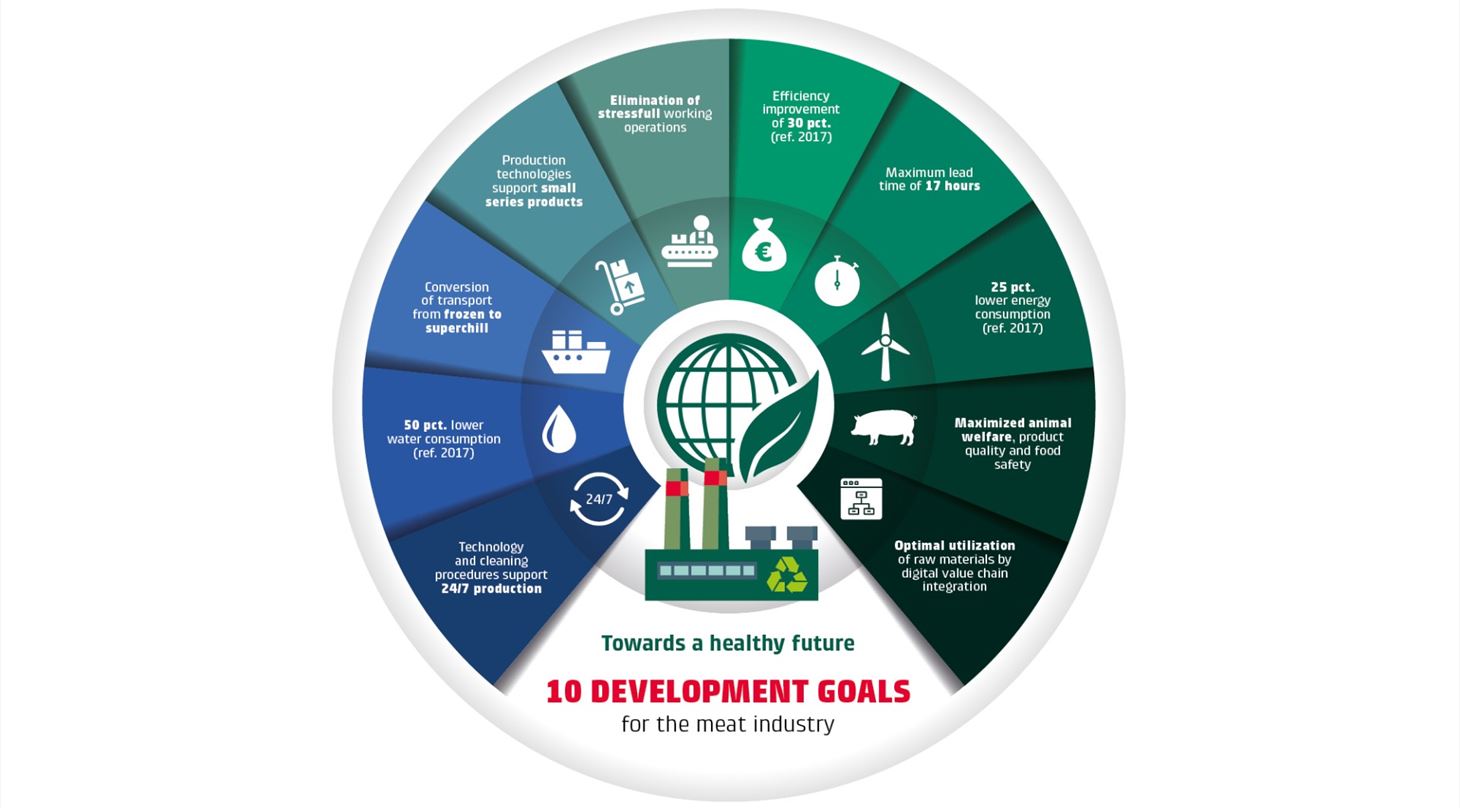
Danish Technological Institute launches 10 development goals helping the meat industry to increase competitiveness
At IFFA 2019, Danish Technological Institute is launching 10 development goals that aim to help the meat industry to radically increase competitiveness. One of the goals is to achieve a maximum lead time of 17 hours before the meat leaves the slaughterhouse.
”The meat industry’s raison d'être is challenged by consumers all over the world. Competition is fiercer than ever, and consumer demands in terms of e.g. working environment, animal welfare and traceability are increasing every day. By launching the 10 development goals, we aim to help the industry to develop and implement the right solutions to overcome these challenges”, says Benny Sandersen, Business Development Director, Danish Technological Institute.
The goals are launched at IFFA 2019, and they all aim at either cutting costs, increasing quality or minimizing the environmental impact from the production processes of pork.
Maximum lead time of 17 hours
One of the goals is a maximum lead time of 17 hours which is a significant reduction from today’s up to 30 hours lead time before the meat leaves the slaughterhouse.
“To reach this goal, it is necessary to convert the cooling and production processes and cut the intermediate storage. The result is meat of higher quality, longer shelf life and increased traceability so the slaughterhouses and pork processors can sell their products at a higher price. Furthermore, it is possible to cut the production costs and thereby improve the competitive advantage”, says Benny Sandersen.
Demand for smaller productions series
It will be possible for the industry to meet consumer demands for specialized products e.g. from organic farming or with a high level of animal welfare.
“In the future, the industry has to be able to produce smaller amounts of different kinds of pork meat and this is very difficult today with the current production setup. By working towards the 10 development goals, the slaughterhouses can gear their business for the future demands and at the same time, secure their position in the market by staying competitive”, says Benny Sandersen.
Quality assured by the industry
Danish Technological Institute has developed the 10 goals in cooperation with the Danish pork industry, which is one of the largest exporters in the world and is widely acknowledged for high production quality.
“The Danish pork industry is facing the same challenges as slaughterhouses and pork processors in Brazil, the USA or any other market and therefore, the goals are relevant to the industry globally. Today, we do not have all the solutions to meet every goal but by keeping them as lighthouses in the innovation process, we will find new solutions to benefit the industry and the consumers”, says Benny Sandersen.
Meet Danish Technological Institute at the Pavilion of Denmark in Hall 9.1 Booth E41D.
About Danish Technological Institute
- We are a not for profit innovation and consultancy organisation with an entire division specializing in meat production.
- We have spearheaded innovation and worked closely with the international meat industry for more than 60 years.
- Danish Technological Institute provides research, equipment and consultancy services covering quality, safety and production of pork, cattle, sheep and poultry for meat companies all over the world.
Photo text: At IFFA 2019, Danish Technological Institute is launching 10 development goals that aim to increase competitiveness and help slaughterhouses and pork processors meet consumer demands.
Read more